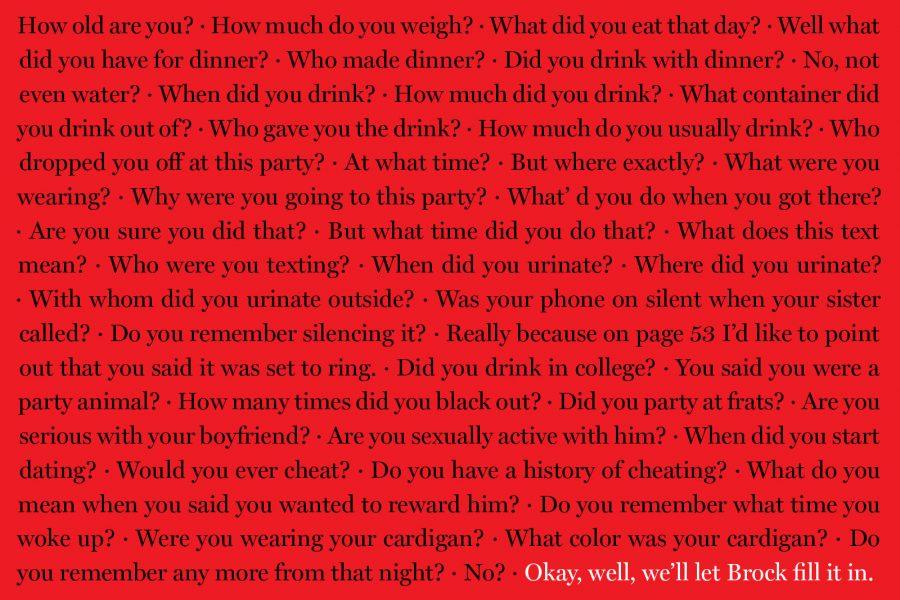How America legalized rape (Opinion)
Inside our culture of sexual violence
October 13, 2016
When people think of rape, they picture dark alleys or a masked assailant lurking in the shadows; they picture what Hollywood has fed them. However, after listening to such a misleading narrative for so long, it becomes hard to discern what rape actually is. Rape is trusting the wrong person, being in the wrong place at the wrong time, wanting to have fun with a couple of friends and waking up behind a dumpster not knowing why you can’t find your pants or underwear. Rape is being questioned instead of comforted, it’s having nightmares that force you awake whenever you can finally fall asleep, it’s having to retell the story over and over in a courtroom full of people. Rape is watching your assailant roam free after three months with peace of mind when you can barely go outside because you might have a panic attack. Rape is real, the effects of it are real, and the rape culture that has developed as a result of the light sentences given to perpetrators is very real.
“No means yes; yes means anal.” Those were the words shouted with pride by a Yale fraternity in 2011. The popular video brought proof to those doubting the existence of a rape culture and the sense of entitlement felt by frat boys. And for those who argue that it’s “just a video,” frat chants like these which have also occurred at St. Mary’s University encourage and enable perpetrators. According to a 2007 study by Oklahoma State University professor John Foubert, which was supported by another study at Ohio University, this leads frat boys to rape three times as much as the average male. These studies prove that we as a society have failed to educate rapists by allowing their sense of entitlement to bloom.
Judge Aaron Persky is now infamous for sentencing Stanford rapist Brock Turner to six months in prison, of which he only served three, as well as three years of probation and a requirement to register as a sex offender. Through his decision to be lenient, Persky continued a system of excuses, second chances, and injustices that ultimately play to the benefit of the perpetrator.
Rape is the only crime in which the victim is guilty until proven innocent, despite only two to eight percent of all accusations being false. The willful ignorance of politicians and a blind public has allowed sexual violence to become not only acceptable, but encouraged – another notch on a frat boy’s belt. This same willful ignorance has, according to the National Center for PTSD, led to ten percent of rape victims committing suicide while only three percent of convicted rapists ever serve a jail sentence. Our willful ignorance has led to a broken justice system that will continue to revictimize victims until changes are made.
Rape culture exists because we perpetuate the myth that it doesn’t, so the first step is to shift our perspective on rape, seeing it for what it really is; don’t focus on what the victim could’ve done differently – instead, focus on which institutional failures led the rapist to believe that his or her actions were okay. The next step is to enforce our rejection of rape culture in all aspects of life: if you see online abuse, report it, if someone within your social circle tends to use words like “slut” or “whore” to describe women, let them know that those labels only serve to reinforce the social construct of femininity. Lastly, believe the victim. Rather than questioning them, remind yourself that, statistically, they’re most likely telling the truth, and the act of validating victims by believing them provides an unimaginable amount of support. By taking action, we can be the last generation that has to be fearful of going to college, joining the army, or even going out with friends. Through the validation of victims, we can eliminate an unnecessary social fear.

